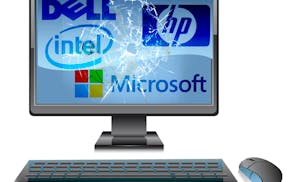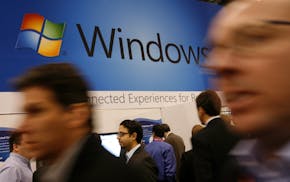The big news in the news business is that billionaire Jeff Bezos, CEO of Amazon.com, has bought the financially ailing Washington Post and is willing to experiment with online news. In effect, the Internet that has afflicted the nation's newspapers, diminishing their collective advertising revenue by 45 percent since 2006, has come to their rescue.
But hold the champagne. There's more to the story.
Among the nation's newspapers, a handful are national in scope: the Washington Post, New York Times, Wall Street Journal, Los Angeles Times and Chicago Tribune. All are struggling because much of their print advertising has been diverted to Internet advertising companies such as Google. But, under Bezos, the Washington Post will have new money to fund expansion, a word that hasn't been uttered in newspapers for much of the past decade.
Where would the Post expand, particularly when owned by one of the Internet's own marketing wizards? I think it would become a truly national online newspaper by adding local news from other big cities across the country. (Distributing printed daily newspapers across the country isn't cost-effective or necessary.) Let's call this hypothetical local-national news website "USA Tomorrow."
Can you say that again, only slower this time?
Sure. Today the Washington Post offers national and international news on its main website, washingtonpost.com, and provides local Washington, D.C., area news on Web pages that are just a click away. Suppose that, under Bezos, the Post established news bureaus in other cities and provided their local news alongside the Washington, D.C., local news. Readers would just click "Local" on the Post website to find their city.
The creation of USA Tomorrow is not beyond the reach of Bezos, who is personally worth $25 billion, and this kind of aggressive behavior is in the man's DNA. Under Bezos, Amazon has become one of the world's premier retailers, sending shivers through executives at brick-and-mortar stores across the nation. It's also become the nation's largest cloud-computing provider (offering on-demand computing services from the same data centers that run Amazon.com). And Amazon has become a formidable competitor in the book industry by publishing low-cost e-books and its own Kindle e-readers.
Where would USA Tomorrow begin its expansion? It could be anywhere, but how about New Orleans, where the printed paper is published only three days a week, or Cleveland, where newspaper home delivery is being cut to four days weekly?
If I'm wrong and Bezos doesn't create USA Tomorrow, I'm betting it will be done by one of Amazon's rivals, Google, Apple or Microsoft, which can't risk letting Bezos and Amazon dominate yet another Internet business.
E-mail tech questions to steve.j.alexander@
gmail.com or write to Tech Q&A, 425 Portland Av. S., Minneapolis, MN 55488. Include name, city and telephone number.

Alexander: A beeping computer is telling you what's gone wrong inside

Alexander: How to stop deleted iPhone e-mails from coming back

Alexander: Refurbished PCs may need a BIOS update to use new components

Alexander: Windows 11 not always to blame for browser or e-mail problems


